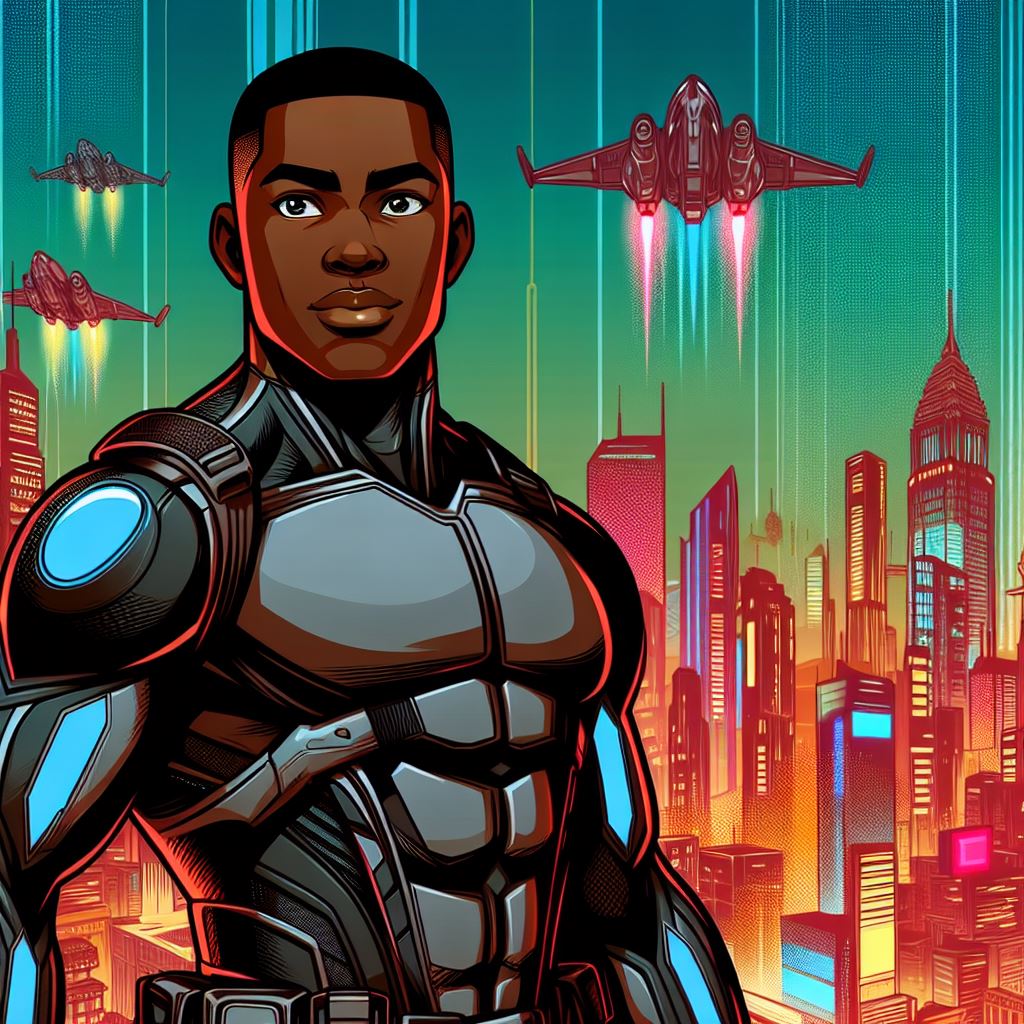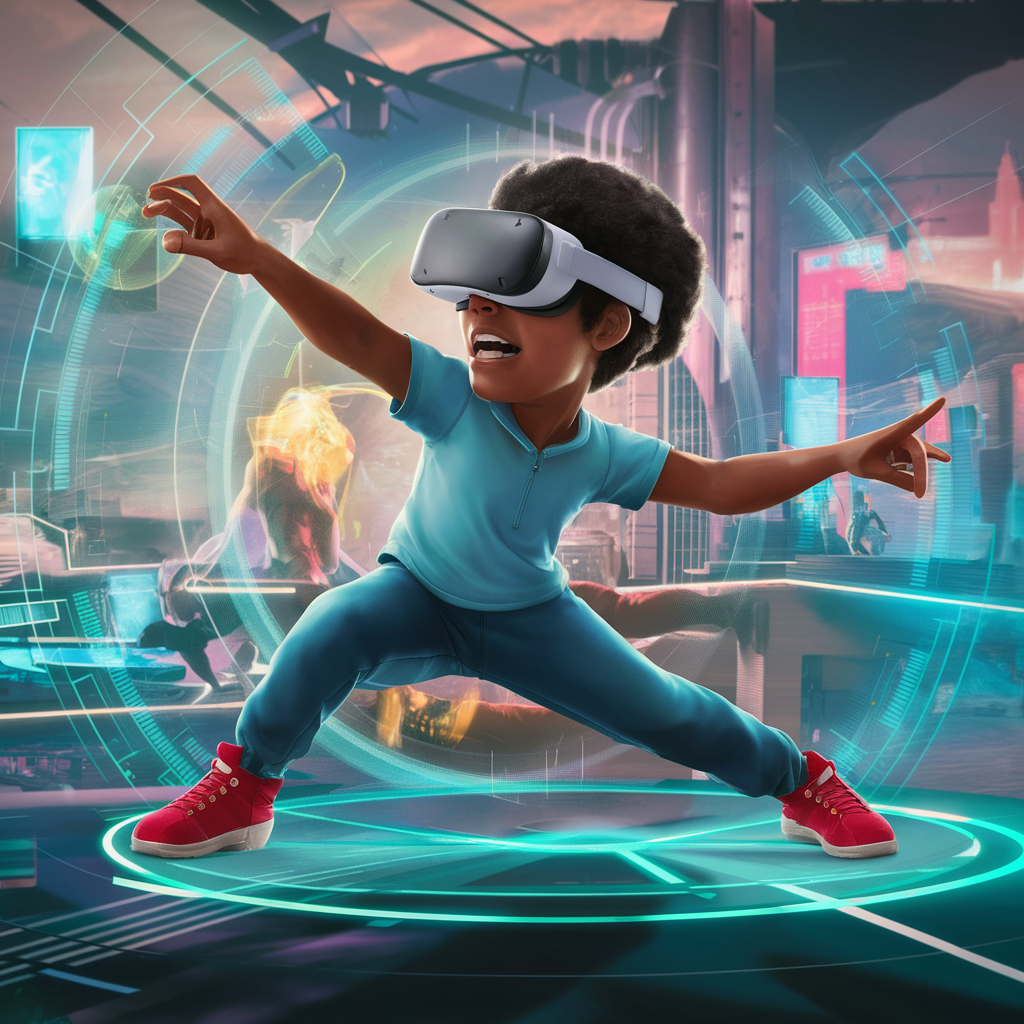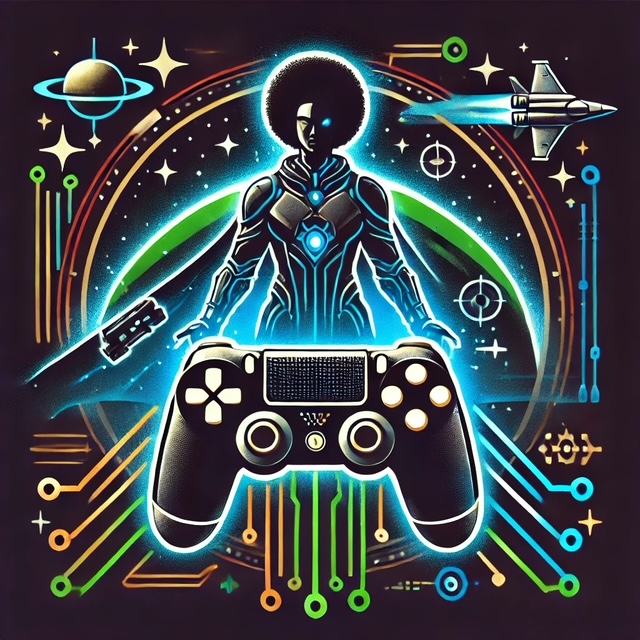For decades, the portrayal of Black characters in gaming and science fiction has evolved from background figures and stereotypes to powerful, nuanced protagonists. While representation has improved significantly, there are still barriers to overcome. Let’s look at the progress made and what’s still needed to create a truly inclusive landscape in gaming and sci-fi.
A Look Back: Early Representation
The early days of sci-fi and gaming were largely devoid of meaningful Black representation. When Black characters appeared, they were often minor roles, sidekicks, or portrayed with stereotypes. In sci-fi, Star Trek’s Lt. Uhura (Nichelle Nichols) in 1966 was groundbreaking as a competent Black woman in a position of power, paving the way for future roles. Similarly, Lando Calrissian (Billy Dee Williams) in Star Wars: The Empire Strikes Back (1980) marked a shift toward more charismatic, independent Black characters.
In gaming, Black characters were often reduced to archetypes, such as Mike Tyson in Punch-Out!! (1987) or sports figures in early NBA and NFL games. When they appeared in narrative-driven games, they were frequently cast as villains or gang members, reinforcing negative stereotypes.
Progress in the 2000s: A Shift Toward Nuance
As gaming and sci-fi grew in cultural importance, Black characters started receiving more depth and agency. The 2000s saw a notable shift:
- Carl “CJ” Johnson in Grand Theft Auto: San Andreas (2004) offered one of the first Black protagonists in a major open-world game, though his story still centered around gang violence.
- Sergeant Major Avery Johnson in Halo (2001-2010) became a fan favorite, embodying leadership and resilience.
- In film, Will Smith’s roles in I Am Legend (2007) and Men in Black (1997-2012) proved that Black actors could lead major sci-fi franchises.
The Modern Era: Expanding Horizons
The last decade has brought an increase in well-developed Black protagonists, moving beyond stereotypes and token roles. Some key examples include:
- Miles Morales in Marvel’s Spider-Man: Miles Morales (2020) – A fully realized, multidimensional hero leading his own game.
- Bayek in Assassin’s Creed Origins (2017) – A richly developed Black protagonist with a deep emotional narrative.
- Sojourn in Overwatch 2 (2022) – A Black female hero in a popular multiplayer franchise, a rare sight in earlier years.
- Finn (John Boyega) in Star Wars: The Force Awakens (2015) – Though his character arc faced criticism, his casting was a milestone for sci-fi representation.
- Black Panther (2018) – This Marvel blockbuster wasn’t just a movie; it was a cultural movement showcasing Afrofuturism in mainstream cinema.
What Still Needs to Change?
Despite progress, challenges remain:
- More Black Protagonists – While supporting characters have increased, Black lead roles remain scarce in both gaming and sci-fi franchises.
- Diverse and Authentic Storytelling – Black characters are often placed in crime-related, urban settings. More representation in fantasy, horror, and speculative fiction is needed.
- More Black Creators – Authentic representation comes from those who shape the narratives. More Black writers, game developers, and directors are needed in creative leadership roles.
- Better Character Customization in Games – Many RPGs still lack diverse Black hairstyles, skin tones, and facial features. Games should provide more inclusive customization options.
- Avoiding Tokenism – Characters should be developed with the same depth and heroism as their counterparts, rather than just existing for diversity’s sake.
Upcoming Games, Movies, and Creators Leading the Change
As we look forward, several upcoming projects and creators are set to push Black representation even further:
- Marvel’s Blade (2025) – Featuring Mahershala Ali as the vampire hunter, this film will bring a Black-led superhero into the dark fantasy realm.
- Static Shock Movie (TBA) – Based on the beloved Milestone Comics character, this film has the potential to introduce new generations to a Black superhero with rich storytelling.
- Wakanda Forever: The Future of Black Panther (TBA) – With the continued expansion of the Black Panther universe, new characters and narratives will further develop Afrofuturism in sci-fi.
- Upcoming Indie Game We Are the Caretakers – A sci-fi strategy game influenced by Afrofuturism, highlighting Black-led narratives and environmental themes.
- Developers like Abubakar Salim (Founder of Surgent Studios) – Salim is working on Tales of Kenzera: ZAU, a game inspired by African storytelling and mythology.
With these projects and creatives leading the charge, the future of Black representation in gaming and sci-fi looks brighter than ever. By continuing to support and uplift these voices, we can help shape a more inclusive and dynamic industry.
The Future of Black Representation
The industry is moving in the right direction, but continued advocacy is essential. Supporting Black-led projects, amplifying Black voices in the industry, and demanding better representation will ensure future generations see themselves reflected in powerful, inspiring ways. The evolution of Black characters in gaming and sci-fi is ongoing, and with continued efforts, the next decade could bring even more groundbreaking changes.


